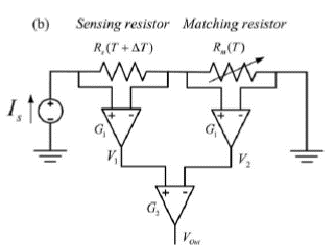Hi,
I have a two resistors (R1 and R2, they are about 5000 ohm) in series with a square wave current passing through (250nA - 500nA). I am looking for differential amplifier to enhance the voltage signal across each of the resistor. After differentiating the voltage across each resistor with 100 gain, I want to subtract the two output signal from the two differential amplifiers.
I am looking at the INA103. I don't know it is good for my approach since I need very high precised voltage signal. the output signal should have resolution down to 1nV with no gain. And the two differential amplifier should have the exact gain. Do you have any recommendation a amplifier has low noise, high gain accuracy, and high input impedance.



